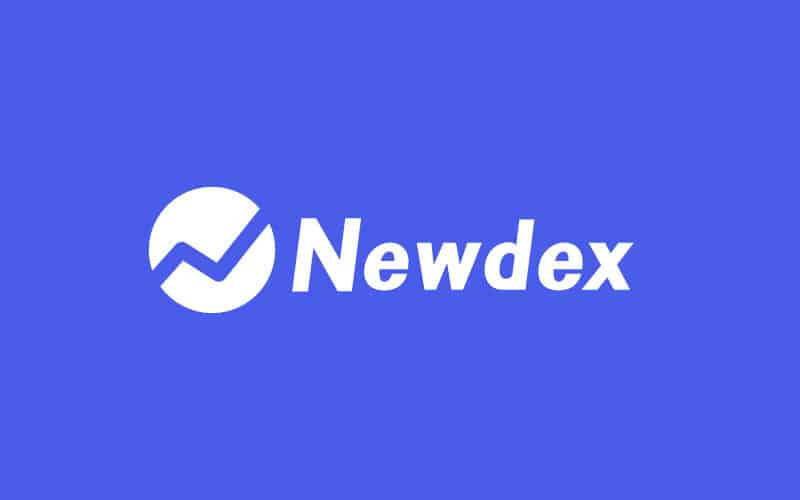Newdex boasts of being the first decentralized exchange based on the EOS platform. Founded in 2018, the service was integrated into wallets as Dapp, offering a comprehensive solution within wallets. The service included a swapping feature using Wallet code scanning. The service was initially started as an order book DEX for matching on-chain and settlement which was later converted to aggregate service. The company is based in Hong Kong. There are no details present on the team members, their experience, and their expertise.
Newdex overview
Some of the key features of this platform are:
- It uses blockchain technology to ensure transparent and verifiable in real-time info that prevents manipulation of data in the exchange.
- It does not have access to the private key of users enabling robust protection of assets and user capital.
- User account is decentralized so does not need registration, deposit, withdrawal, or receive assets on transaction completion. This helps in providing a streamlined operation.
- It supports various tokens enabling the easy realization of the funds.
- DEX is the native token of this exchange. It was earlier named NDX but changed to DEX in 2021.
- Supported wallets are TokenPocket, imToken, EOS Live, Starteos, Huobi, and more. Desktop wallets the platform supports include Leaf, Scatter, Math, Wombat, Anchor, and Token Pocket.
How does Newdex work?
The platform allows for all the following:
1. Trading rules
Sellers and buyers are required to place the orders, decide the price based on the price priority rule and facilitate the swap. If the price is similar, priority is chosen based on application time with the individual who makes the application first facilitating the swap.
2. Staking
Users can stake NDX via Dapp, App, and PC.
3. Creating liquidity pool
The service aggregates liquidity pool depth of multiple swaps to ensure users get the best price and depth. It also provides a comparison of multiple swap market info delivering transparency in the transactions.
4. Coin info
The platform provides a comprehensive database of coins that include the symbol, name of the project, contract address, etc. The info helps in reducing costs and improving decision- making efficiency.
What can you buy on Newdex?
The service is based on the EOS chain. It allows the purchase of the native token DEX and other tokens based on the ETH, BSC, HECO, and other chains. The exchange allows mining of EOS and TRON. When you stake or consume DEX you get a maximum of 50% discount on the fees and other perks like free CUPU trading, anonymous trading, and candy airdrops.
Is Newdex safe?
As per the company info, the digital assets are self-managed and the service does not have access to the private key of users. This helps avert risks of misappropriation of assets. There is no further mention of the security methods the platform uses.
Newdex fees, compatible wallets, and transactions
The service charges of the platform are listed below:
- There are no recharge fees
- Withdrawal fees are not applicable
- 0.2% transaction fee is charged for maker trading
- 0.2% is charged for taker trading
- For users with monthly transactions over 100,000 EOS, a fee discount is present
- VIP members enjoy discount rates ranging from 0.20% to 0.10%
What are the ways to trade on Newdex?
Users can trade via Dapp, App, and PC.
With Dapp, here are the steps to follow:
- You need to open your wallet and choose the discovery option
- Use the ‘My’ and ‘Upgrade’ options
- Next you need to enter the NDX amount you want to stake and click on the stake option to complete the process
Using the Newdex app, the steps to follow are:
- Open the app and click on ‘my’ and ‘please sign in first’ options
- Pick a wallet you want to use
- Choose the ‘my’ and ‘upgrade’ options
- Enter the NDX you want to stake and click on the stake option
Customer support
For support, an FAQ section, an email address, a submit a request section, and a live chat window are present.
Should you trade with Newdex?
Newdex summary
Newdex summaryPros
- Full transparency of all data
- High security
- Works on aggregate chains
Cons
- Accepts only crypto assets








